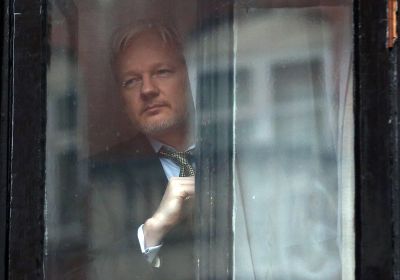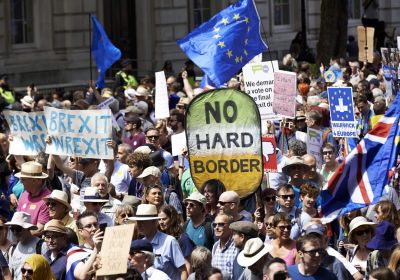
The persecution of Julian Assange is the conquest of us all: of our independence, our self respect, our intellect, our compassion, our politics, our culture, writes John Pilger.

The persecution of Julian Assange is the conquest of us all: of our independence, our self respect, our intellect, our compassion, our politics, our culture, writes John Pilger.

At the moment there is only one real mass movement in Britain — the one which got 700,000 people onto the streets of London in October last year calling for a new referendum. Labour should be leading it rather than be perceived as equivocating about it, writes Liam McQuade.